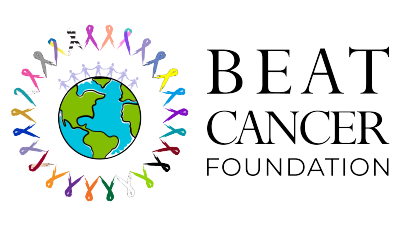
Genistein

Genistein has Promising Potential in Combatting Metastasis and Beyond
Genistein, an exceptional plant-derived compound, holds immense potential in tackling multiple health adversities, including cancer. Its effectiveness and benefits, supported by an extensive range of scientific literature, elevates its status alongside notable plant extracts such as Curcumin, Quercetin, Berberine, and EGCG. RGCC recognizes Genistein's importance, as reflected in its inclusion in the chemo sensitivity analysis tests.
What sets Genistein apart is not merely the plethora of available scientific studies or the diverse intracellular mechanisms it influences, but also the numerous successful clinical trials and the favorable results these trials have yielded. Especially in oncology, Genistein's potential to curb metastasis and enhance the efficacy of chemo- and radio-therapy has garnered considerable attention.
Genistein, an isoflavone compound found in soybeans and Sophora Japonica, has sparked significant interest due to its role in reducing the incidence of breast and prostate cancer in Asian populations, as evidenced by various epidemiological studies.
A New Hope for Countering Health Challenges
Emerging scientific and clinical studies attribute numerous health benefits to Genistein. Some notable effects include:
• Protective effects against nonalcoholic fatty liver disease, reducing insulin resistance and inflammatory states
• Demonstrable preventive action against prostate and breast cancer
• Alleviating menopausal symptoms and related diseases like cardiovascular diseases, osteoporosis, obesity, diabetes, anxiety, depression, and breast cancer
Several studies have also confirmed the beneficial impacts of Genistein in combating lysosomal storage diseases (mucopolysaccharidoses – MPS) affecting various organs and tissues, including the heart, respiratory system, bones, joints, and central nervous system.
An Exceptional Ally Against Cancer
Beyond these health benefits, Genistein has emerged as a potent anti-cancer agent due to its:
• Metastasis inhibiting properties
• Phytoestrogenic (estrogen-like) qualities
• Potent tyrosine kinase inhibition and EGFR, PDGFR inhibition
These properties lend Genistein its unique ability to fight against multiple types of cancers. The extensive range of clinical studies underpinning its safety and anti-cancer potential demonstrate its capability to augment chemotherapy's effectiveness and reduce its side effects.
Genistein's Role in Breast and Colorectal Cancer
As a phytoestrogen similar to Estradiol, Genistein possesses potential for hormonal normalization. It has been found to effectively combat breast cancer cell lines, especially when combined with Sulforaphane, an extract from cruciferous vegetables.
In colorectal cancer, Genistein has shown promise by killing cancer cells via mechanisms like PI3K/Akt pathway attenuation and want signaling inhibition. Furthermore, it's been observed to reduce chemotherapy resistance in cancer cell lines when combined with either 5FU or platinum-based chemotherapeutic agents.
Promising Findings in Pancreatic and Bladder Cancer
Clinical trials have also revealed Genistein's potential benefits in treating pancreatic and bladder cancer. A study in Sweden demonstrated significant positive outcomes for pancreatic cancer patients who were treated with Genistein in combination with Gemcitabine.
Epidemiologic data also suggest that high dietary soy intake (rich in Genistein) is linked with lower incidences of bladder cancer. It's been further suggested that Genistein can impede bladder cancer cell proliferation and migration, and trigger cell apoptosis.
Genistein: A Neuroprotective Agent
In addition to its anti-cancer properties, Genistein has exhibited potent neuroprotective capabilities. Recent studies have indicated that this compound can protect against neurodegenerative diseases such as Alzheimer's, Parkinson's, and Huntington's disease. Genistein has shown potential in inhibiting β-amyloid formation and tau hyperphosphorylation, key pathological processes implicated in Alzheimer's disease.
Conclusion
Genistein has come into the spotlight as an alluring prospect in cancer research and therapy. Its potential health benefits extend beyond cancer prevention and treatment, to areas like metabolic diseases and neurodegenerative disorders, indicating its potential for holistic health improvement.
Despite its significant potential, one must exercise caution when considering Genistein supplementation, especially in hormonally sensitive conditions such as breast cancer. The interaction of Genistein with conventional treatments needs to be thoroughly evaluated on an individual basis.
Further research is necessary to fully elucidate the various health benefits and potential side effects of Genistein. However, the compelling body of evidence so far highlights the plant-derived compound as a promising ally in the fight against various diseases.
Dose & Source
The typical dose in the studies discussed above were in the range of 300 to 600 mg/day. This dose range was found safe. However, the case reports addressed in the patent seem to suggest higher doses as well.
References:
1. A phase I dose escalation trial of AXP107-11, a novel multi-component crystalline form of genistein, in combination with gemcitabine in chemotherapy-naive patients with unresectable pancreatic cancer https://pubmed.ncbi.nlm.nih.gov/27234064/
2. Phytoestrogens for Cancer Prevention and Treatment https://www.ncbi.nlm.nih.gov/pmc/articles/PMC7759898/
3. Efficacy and Safety of Short-Term Genistein Intervention in Patients with Localized Prostate Cancer Prior to Radical Prostatectomy: A Randomized, Placebo-Controlled, Double-Blind Phase 2 Clinical Trial https://www.tandfonline.com/doi/abs/10.1080/01635581.2011.582221
4. Prostate-Specific Antigen Modulatory Effect of a Fermented Soy Supplement for Patients with an Elevated Risk of Prostate Cancer: a Non-Randomized, Retrospective Observational Registration https://www.ncbi.nlm.nih.gov/pmc/articles/PMC7659407/
5. Genistein supplementation improves insulin resistance and inflammatory state in non-alcoholic fatty liver patients: A randomized, controlled trial https://www.clinicalnutritionjournal.com/article/S0261-5614(17)30202-9/fulltext
6. Effects of the phytoestrogen genistein on bone metabolism in osteopenic postmenopausal women: a randomized trial https://pubmed.ncbi.nlm.nih.gov/17577003/
7. Effects of the phytoestrogen genistein on hot flushes, endometrium, and vaginal epithelium in postmenopausal women: a 1-year randomized, double-blind, placebo-controlled study https://pubmed.ncbi.nlm.nih.gov/17251874/
8. Inhibition of cancer cell invasion and metastasis by genistein https://link.springer.com/article/10.1007/s10555-010-9238-z
9. Understanding genistein in cancer: The “good” and the “bad” effects: A review
10. Phase I and II studies of the decitabine–genistein drug combination in advanced solid tumors. https://ascopubs.org/doi/abs/10.1200/jco.2015.33.15_suppl.e13556
12. Antiosteoporotic Activity of genistein Aglycone in Postmenopausal Women: Evidence from a Post-Hoc Analysis of a Multicenter Randomized Controlled Trial https://pubmed.ncbi.nlm.nih.gov/28241420/
“Knowing all your treatment options could be life-saving!”
Location
Sheridan, WyomingTogether, we can beat cancer
Thank you for your interest in the Beat Cancer Foundation. We are here to support you every step of the way in your cancer treatment journey. Please fill out the form below, and our team will be in touch with you shortly. Together, we can beat cancer. (307) 291-0991

